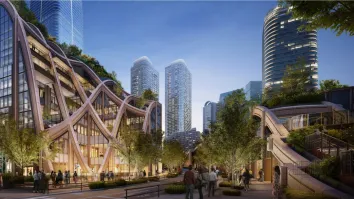
The lure of the living sector: How the APAC living sector is attracting investor attention
The sector only accounts for 6% of property investment volumes, but it’s expected to be a significant growth driver in the region.
The living sector in Asia Pacific, encompassing student housing, co-living, serviced apartment, rental housing/multifamily, and senior living, is attracting investor attention, driven by growth of the region’s expatriate population, low homeownership affordability, and the effectiveness of rental residential investments as an inflation hedge, according to the latest research by CBRE.
While the living sector in Asia Pacific is still in its early stages, accounting for only 6% of commercial real estate investment volumes since 2019, compared to 27% in Europe and 44% in the U.S., there is a vast opportunity for investors looking to diversify their portfolios across the region.
“We expect potential interest rate cuts will drive capital deployment and consolidation opportunities,” said Greg Hyland, Head of Capital Markets, Asia Pacific for CBRE. “With strong market fundamentals and resilient demand, the living sector offers institutional investors and private equity fund managers the opportunity to diversify their portfolio.”
Leading the region in living sector investment volumes is Japan, with its multifamily sector being the most developed market, attracting institutional capital, REITs, and global investors. Australia and mainland China follow as the second and third biggest living sector investment markets, while Hong Kong SAR, Korea, and Singapore are also gaining attention, particularly for serviced apartments and student housing, due to the influx of non-locals and expatriates, as well as rising rents.
Elevated residential prices are driving the growth of rental housing in Asia Pacific, with the ratio of the median private housing price to annual household income significantly higher in Asia compared to the U.S. The rise in the expatriate population in Asia Pacific post-pandemic is further boosting the demand for rental housing and providing a solid foundation for investment in the living sector.
Over the long run, growth in residential rents has generally outpaced inflation in the broader economy. This indicates that rental housing investment provides a good hedge against inflation. In Asia Pacific, leases for office, retail and logistics spaces typically run for three to seven years or above, while rental housing leases usually last for one to two years. The shorter lease tenures in rental housing allow for more frequent rent adjustments.
“Although multifamily comprises the majority of living sector investment in Asia Pacific, a significant portion of investment flows into niche subtypes such as co-living, student housing, and senior housing,” said Ada Choi, Head of Research, Asia Pacific for CBRE.
“The living sector offers attractive investment opportunities compared with other asset classes. For example, in Tokyo the yield spread for multifamily over office assets is 50-55 basis points. Investors are also exploring opportunities in Purpose-Built Student Accommodation (PBSA) in Australia and hotel conversions in Hong Kong SAR to cater to their substantial international student population and high occupancy rates.”
To read the full report with market analysis of Australia, Japan, mainland China, Hong Kong SAR and Singapore, click here.


















 Advertise
Advertise


